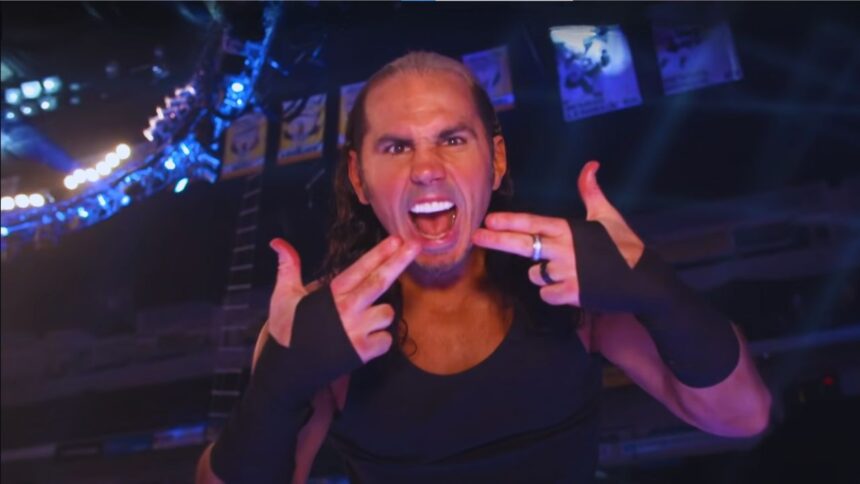WWE has solidified its agreement with the Kingdom of Saudi Arabia to host multiple premium live events in the country. This partnership has been the subject of much discussion, particularly regarding the unique requests from Saudi officials who may have a nostalgic connection to WWE’s past. Matt Hardy, still under contract with WWE at the time, confirmed a widely discussed rumor on his podcast, “The Extreme Life of Matt Hardy.”
“There were times where people who probably grew up as young children or teenagers in Saudi, and they had these people who were their favorite wrestlers when they were growing up, and now they’re working in this sports authority,” Hardy recalled. “They said, ‘Hey, we want so-and-so guy. I was probably a big fan of him growing up or whatever.’ And they did ask for some people who were no longer with us. I know that did happen on a couple of occasions.”
One of the most notable instances involved the legendary Yokozuna. Allegedly, during the planning stages of The Greatest Royal Rumble—the first premium live event under the 10-year agreement—the Saudi prince requested Yokozuna, unaware that he had passed away in 2000. As a result, Hiroki Sumi, a former sumo wrestler, was brought in as a consolation entrant. Sumi entered the match at #7 and briefly clashed with Mark Henry before being eliminated.
Despite these occasional mismatches between requests and reality, Saudi Arabia has consistently paid top dollar for marquee matchups, some of which were highly anticipated dream matches for many fans. Matches like DX versus the Brothers of Destruction and The Undertaker versus Goldberg were specifically requested and arranged to satisfy the local audience’s desires, even though they received mixed reviews from critics and fans.
“There were people that really wanted these specific dream matches, and they wanted them to go down in Saudi,” Hardy said. “They were super happy to get those.”
These events often feature unique and sometimes surprising matchups, driven by the high stakes and financial incentives involved. The Saudi officials’ requests are driven by a blend of nostalgia and a desire to see wrestling legends they idolized in their youth, even if those wrestlers are no longer part of the current WWE roster or, in some cases, no longer alive.
The partnership between WWE and Saudi Arabia has been lucrative, but not without its controversies. The arrangement often requires WWE to balance its storytelling and roster availability with the demands and expectations of the Saudi audience. This delicate balance can sometimes lead to matches that, while financially profitable, may not always align with the current direction of WWE’s ongoing storylines or the preferences of its broader fan base.
Despite the logistical and creative challenges, the partnership has brought substantial financial benefits to WWE, enabling the company to invest in other areas of its business. However, it also underscores the complexity of managing international partnerships where cultural and nostalgic factors play a significant role in event planning.
Matt Hardy’s confirmation of these behind-the-scenes stories adds a new layer of understanding to WWE’s operations in Saudi Arabia. It highlights the unique demands placed on the company and the lengths to which WWE goes to fulfill these high-profile international commitments. As WWE continues to navigate this partnership, the insights from industry veterans like Hardy provide valuable context for fans and observers alike.
Stephen’s Note: Matt Hardy’s revelations offer a rare glimpse into the complexities and sometimes surreal demands of WWE’s partnership with Saudi Arabia. These insights not only shed light on the challenges faced by WWE in meeting these unique requests but also underscore the broader implications for international sports entertainment collaborations. As WWE continues to navigate this lucrative yet controversial partnership, Hardy’s experiences provide a compelling narrative that resonates with wrestling fans around the world.




